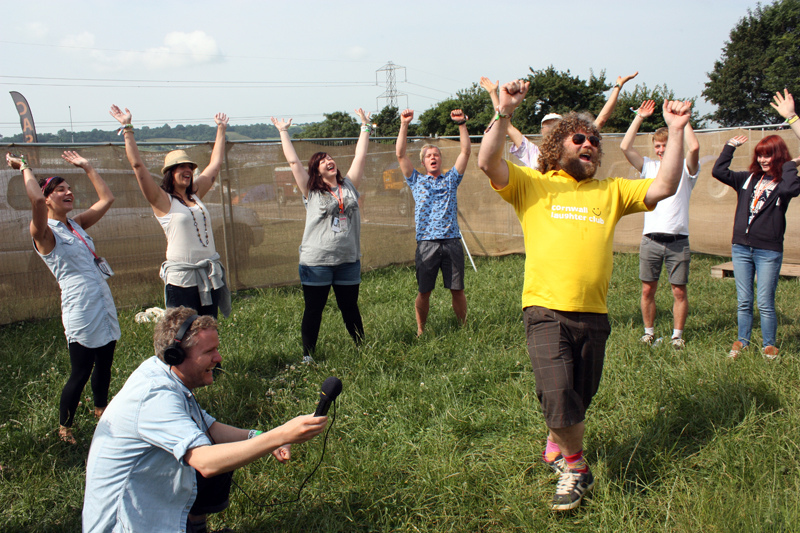
How does Laughter therapy removes stress, know some techniques here
Ahmedabad: Modern life is stressful. Often, we may not feel like chortling at all. Preoccupied with the stress and strain of daily living, we may be more likely to frown and show annoyance than a smile or burst into a fit of laughter.
Laughter yoga is a fascinating practice to consider using with your clients – they are guaranteed to leave with a big smile on their face – and this is the practice we will explore
Laughter yoga, also known as hasna yoga, is a deliberate practice that combines movement and yogic breathing techniques (pranayama) to develop long-term voluntary laughter (Macdonell, 1996).
There’s no need for jokes in this situation. Laughter may be imitated, and the human body and mind are unaware that it is being done. Hasna yoga is founded on the idea that laughing consciously has the same physiological and psychological advantages as laughing spontaneously (Kataria, 2002).
Gentle stretching, chanting, clapping, eye contact, and body motions are all part of laughter yoga. Breathing exercises help the lungs prepare for a good chuckle. Acting, imagery, and fun are all incorporated into the exercises.
Laughter yoga is a great method to stay in shape and stay healthy. When laughing is practiced in groups, it swiftly spreads due to its infectious nature.
Hasna yoga is a kind of yoga that originated in India.
The term hasna means “laughter” or “laughter” in ancient Sanskrit (Macdonell, 1996).
The Sanskrit word Yuj means ‘to unite.’ Yoga, the practice that integrates the mind, body, and soul, has its roots here (Basavaraddi, 2015).
Madan Kataria, a medical doctor, is the creator of modern laughing yoga. Kataria (2002), who is from the Punjab region of India, stumbled discovered a study on its therapeutic advantages while investigating laughter. Laughter yoga was born as a consequence. There are approximately 20,000 free social laughing groups in 110 countries, according to Laughter Yoga University. This exemplifies the popularity of this hobby, which has developed and spread around the globe. Laughter is an underappreciated natural medication that has a variety of health advantages.
While it may seem counterintuitive that laughter may be beneficial to one’s health, research in this field shows that it is true. Over the last five decades, extensive scientific study has demonstrated the positive effects of laughing on our physical and mental health and well-being.
1. Laughter can help you overcome depression.
Around 280 million individuals in the globe have been diagnosed with depression.
Laughter may be a strong antidepressant because laughter produces endorphins, often known as the happy hormone, it lowers cortisol and raises dopamine and serotonin levels, which improves general mood (Yim, 2016)
2. Laughter can bring people together.
Laughter is an important part of developing relationships, and shared laughter might imply that people have similar worldviews. Laughter also makes individuals more inclined to share knowledge.
3. Increase your pain tolerance by giggling.
Pain tolerance can be increased through humour Subjects who were more joyful demonstrated a rise in pain tolerance following humour generation from a hilarious video, however, those who were less cheerful did not have high pain tolerance, according to Weisenberg et al. (1998).
For individuals who like to be serious and negative, laughter and happiness can be a welcome change of pace.
Maintaining good health is important in life, but it may be difficult. Many of your customers will benefit from laughing yoga, which may help them cope with daily stress and obstacles while smiling.











